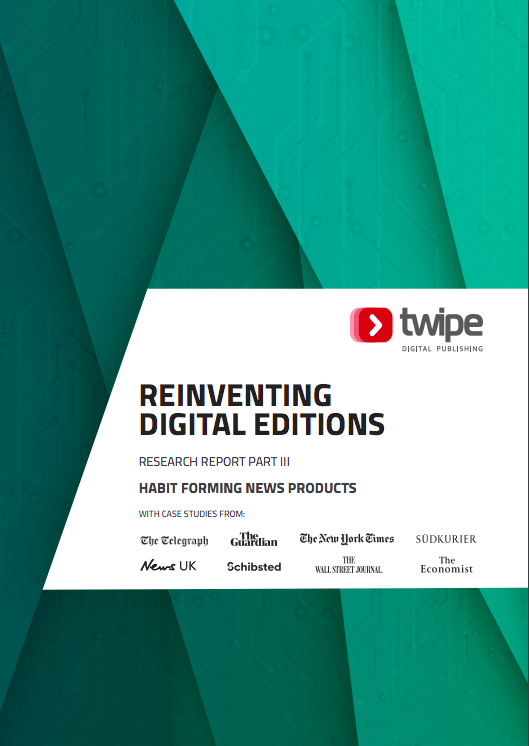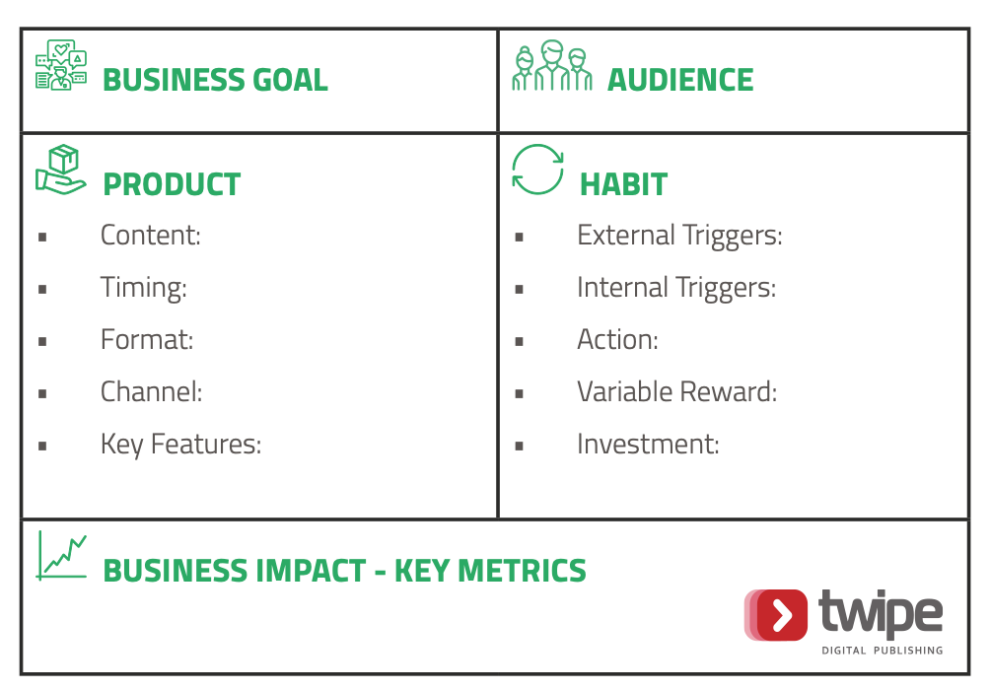In the latest chapter of our Reinventing Digital Editions research series, we bring an essential understanding of habit formation for news consumption on digital platforms. Forming habits and recurring behaviour are key underlying drivers for publishers to build a sustainable subscription business.
Download the report

Through interviews with leaders of habit-formation at The New York Times, Schibsted, The Telegraph, News UK, The Wall Street Journal, The Guardian, and more, this report provides best practices for publishers interested in increasing reader frequency. The whole report can be downloaded here.
Read our complete guide to habit formation, a complement to Twipe’s research report.
Newspapers can become the kings of habit again
Habits are a big part of our lives: 50% of our actions are not conscious decisions. Habits are our brain’s way of increasing its efficiency. Our brain turns daily actions and behaviours into habits, so we can do them automatically and without too much thought – thus freeing up brainpower for other more important challenges.
Historically, newspaper organisations have been the kings in understanding and designing a habit forming product: every morning, with a cup of coffee, people would start their day by reading their newspaper. Newspapers would offer a stimulating mix of news, entertainment and puzzles which kept people investing 20-30 minutes of their valuable time every day.
The advent of the internet has changed the game. In a race to build larger audiences, publishers placed their articles online in an endless stream of news. Online readers were suddenly responsible for creating their own news journeys, which often last for only a few minutes. Newspapers have to re-embrace what has made them successful for more than 400 years: the habitual power of their products.
Habit formation is a strategic priority for publishers
Based on our own research and by interviewing key players in the industry, we have come to the following key findings:
- Understanding habits and adapting product offerings accordingly is now a key priority at all of the leading news organisations we interviewed.
- Habit formation takes time: on average 66 days before an automatic behaviour is ingrained in our brain.
- Habits can be formed through carefully designed Habit Loops: an iterative process requiring triggers, cues, actions, investment, craving and variable reward.
- Studies across the industry show that three reading activities per week is the tipping point where occasional engagement turns into predictable, habitual behaviour.
- Successful news organisations focus on understanding patterns and adapting content to fit readers’ daily lives.
The Habit Formation Canvas, the tool to design habit forming news products
From our research, we have developed the first Habit Formation Canvas for news media products. This tool will help publishers to design and adapt their digital products.
The Habit Formation Canvas helps publishers to structure the following components: the business goal, the product proposition, the habit forming features and attributes and the key metrics for business impact. The Habit Formation Canvas is available at the end of the report and also for download here.

